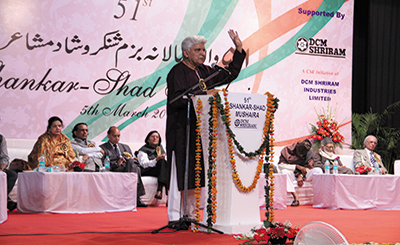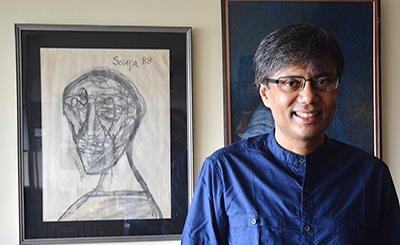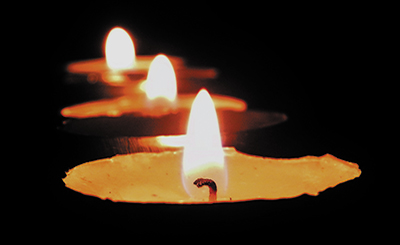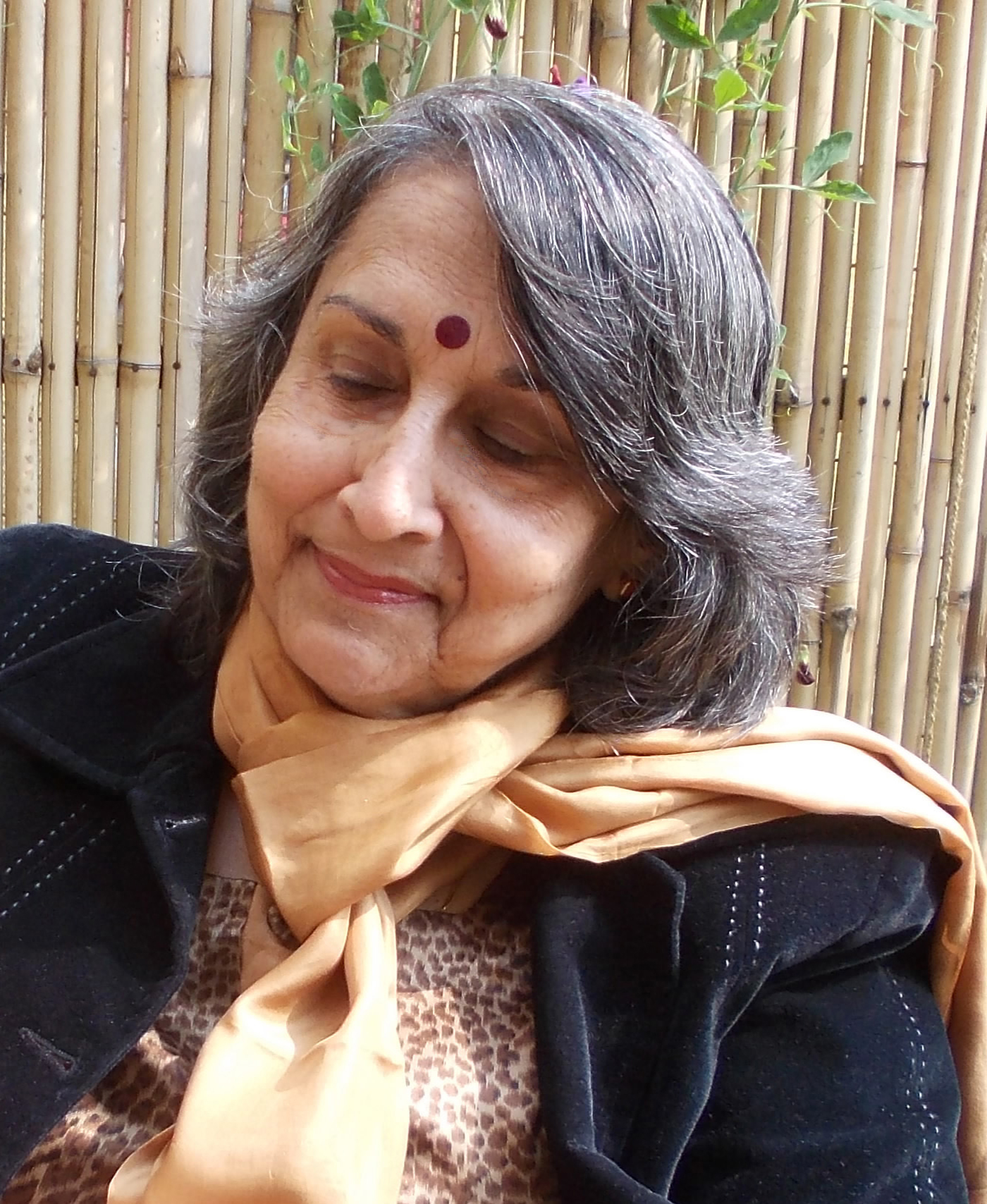
The author of Radius 200, a story of love and longing set in the backdrop of the war for water and nuclear attack, on the novel and her craft
Veena Nagpal’s fourth novel, Radius 200, is the story of fragile love caught in the crossfire between two nuclear nations warring over scarce water resources. It is a richly imagined romantic thriller that grapples a deeper environmental issue. Like the meeting point of three rivers, Radius 200 is the confluence of three stories. The story follows Kyra, a journalist in search of her lost love and Arjun, a geologist, passionately seeking the lost river Saraswati. Their narrative is intertwined with the story of Om, an Indian Army officer, now in a vegetative state, grappling with lost memories of two decades ago, when a General triggered a nuclear attack by blowing up China’s dam on the river Brahmputra. The core of the plot set against the deadly power struggle within a tiny band of nuclear survivors, desperately seeking water within the 200 kilometers radius of a devastated Exclusion Zone. Radius 200 was launched at the 11th edition of the Jaipur Literature Festival on January 27, 2018.
In this interview, Nagpal talks about the trigger for Radius 200, the stories of her other novels, writing for children and the authors whose works she admires. “As a fiction writer I see the universe — and beyond – as my playground. I see no limits, no boundaries except those drawn by the precincts of my own imagination. I knew nothing of military strategy, nothing of weaponry. I had to learn,” she says. “ As a fiction writer, I am an observer and a chronicler of human relationships,” she adds. Excerpts from the interview:
The Punch: Your novel, Radius 200, is a story of love and longing set in the backdrop of the war — for water and nuclear attack. What was its genesis? How did you go about researching for the novel?
Veena Nagpal: The genesis of Radius 200 lies perhaps in a small video I saw many years ago, made by none other than ex-President Abdul Kalam. The video graphically depicted what water scarcity could do to human life.
The images resurfaced in my mind when experts started predicting that the next World War would be over water and that Asia was a major flashpoint. Also, China started building the world’s largest dam at Medog, 30 kilometers from the Indo China border, to divert the waters of the Brahmaputra to its own lands. Once the dam became a reality China could flood India or starve it of water at will. All these facts started nagging me, agitating my imagination… At the same time politico-military relationships in India started showing strain. As a Fauji kid and Fauji wife, it hurt that the finest institution in this country was being so shortchanged. I started asking those ‘what if…’ questions that, very often, are the most potent sparks for fiction. What if a top-ranking Indian General was to take a unilateral decision that triggered a nuclear attack on India? What if the attack separated two lovers — one inside the Exclusion Zone and one outside? A novel such as Radius 200 could never be written without an enormous amount of research. At this point I would like to add that I am not a believer of the “write what you know” school of thought. I find that adage terribly constraining — suffocating almost. As a fiction writer I see the universe — and beyond – as my playground. I see no limits, no boundaries except those drawn by the precincts of my own imagination. I knew nothing of military strategy, nothing of weaponry. I had to learn.
For instance, it was critical to my plot that I find a credible weapon system capable of being surreptitiously deployed to destroy a dam at Himalayan heights. A 1955 movie, Dam Busters, was the only instance I had heard of, of a dam being destroyed. I set about doing painstaking research — in libraries and on the Internet. The flights of imagination in Radius 200 are not only firmly grounded on solid research but have also been validated by discussions with ex-military personnel.
The Punch: What role do geopolitical realities, especially Sino-Indian relations, play in developing the plot of the novel?
Veena Nagpal: Geo-politics per se is the stuff of non-fiction. As a fiction writer, I am an observer and a chronicler of human relationships. Having said that I find it fascinating to think how geo-political realities playing out in the world impact human relationships, what happens when individual love and longing, anger and jealousy, ambition and sense of duty collide with the imperatives of immediate geo-political concerns. Yes, the plot of Radius 200 is grounded on water impacted Sino-Indian geo-political relations, but beyond this factual base, the novel is an exploration of human relationships playing out in extreme situations. So, within the extreme-deprivation Exclusion Zone though life has changed totally in many ways nothing has really changed. Human love and longing; greed and hunger for power; hate and jealousy remain the same.
The Punch: You blend your environmental and ecological concerns and a love story in the novel. How did you work on the structure of the novel, taking both war and love along?
Veena Nagpal: As I see it, love is an indispensable part of life. In war or peace, in a world of plenty or of extreme deprivation, life would be sterile without love.
In Radius 200, the ecological concerns are the backdrop. The real story is of an unexpressed love, fractured and dislocated by the compulsions of larger issues of international concern. The story is of hope, of the dogged persistence of a woman who refuses to give up on a lost love. Working on the structure of the novel was actually no different from working on any other novel of mine. I like to work with a fairly structured plot — much like the foundation of an architectural project or the scaffold a sculptor builds on. Many a times of course the scaffolding needs to be torn down — in whole or in part. Many a times the characters in the book start walking and talking in ways I had never envisaged — often hijacking the plot itself, giving it twists and turns of their making. At such times, I like to play an instrumental role only — letting the characters use my fingertips to tap out the story they want to tell.
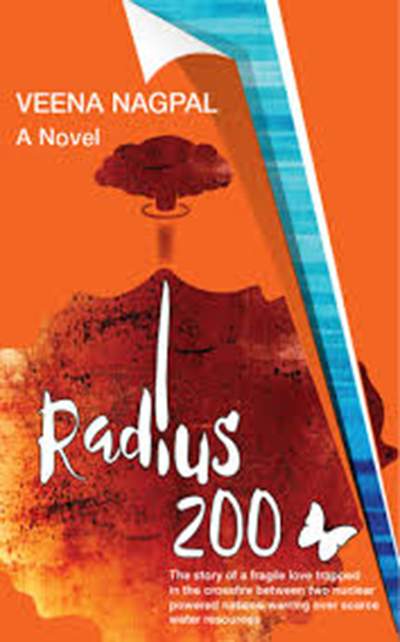
The Punch: Tell us something about your characters: Kyra (journalist), Om (soldier), Arjun (researcher) and Gayatri (singer). How did you conceive the dynamics of their love or attraction? What did you set out to achieve through the quadrangle of their relationship, their entangled lives?
Veena Nagpal: Since my novel dealt with a military theme, obviously there had to be some military officers. So, Om was born. A young, intelligent officer with a bright future who dreams of one day, becoming Chief of Army Staff; an officer so involved in his career that he does not even realise when love has smitten him. Such an officer, though wedded to the fauj, could rebel against a questionable command from a superior. I needed such an officer for my plot. I needed Om.
As much as I required Om, I think Kyra was even more crucial to my plot. Radius 200 is a novel of hope, of the capacity of the human spirit to survive all odds. I needed a protagonist who would have the dogged persistence to persevere in her hope that her love, Om, has somehow survived within the Exclusion Zone, that nuclear survivability is not just a myth. So Kyra was born.
Because Radius 200 has an alternate motif running through the novel — the search for Saraswati the long lost river, symbol too, of a search for wisdom — I needed someone who could be involved in such a search. I needed a geologist/researcher. So Arjun was born. Kyra needed him too — to use him as a foil to make Om realise that if he did not express his love for her, he could lose Kyra to Arjun.
Survivability within the Exclusion Zone would require a person to be a ruthless, self-centered egoist willing to ride rough shod over anyone, resort to any ruse to get what she desires. So Gayatri/Jiji, survivor par excellence, was born.
To make a story interesting, characters have to be in conflict — with themselves, with each other and/or with the circumstances in which they are situated. Their desires and ambitions, love and longing must crisscross, collide, entangle, enmesh. Hence the entangled lives of the four characters you have mentioned.
The Punch: Tell us about your other novels, The Uncommon Memories of Zeenat Qureishi, Karmayogi and Compulsion? How did they happen?
Veena Nagpal: My novels have generally “happened” when some question becomes a thorn in my flesh, starts nagging me so much that it doesn’t let me sleep. Uncommon Memories happened when I just couldn’t understand why, despite the fact that some of my good friends in college had been Muslims (I even kept rozas with them, though that was perhaps prompted by the yummy grub they shared with me when breaking the fast) I still felt an innate wariness whenever I encountered a Muslim. As far as I knew, this feeling of ‘otherness’ between Hindus and Muslims, had existed for centuries. It was this relationship through the centuries that I wanted to reconnoiter in Uncommon Memories and I used Past Life Regression as a tool.
The Punch: You have also written for children. Tell us how is your approach different when you write for children? Is writing for children more tough? Who are the other authors writing for children you admire?
Veena Nagpal: Actually I have written four books of fiction for children: Time Travellers, Smuggler’s Isle, Garbie Garbyhog: The Worm That Wanted to Fly and and Tenderella and the FoF’s. These last two books were never put in the market — they were written specifically for two environment projects, one on vermi composting and the other for encouraging herbal gardens. Under the two projects, five thousand corporate sponsored copies of each book were distributed to schoolchildren in the NCR.
Actually, I’ve never really understood why writing for children should be any different — or more difficult — than writing for adults. I think the finest books for children are those that adults also enjoy. It’s like ice-cream. Both children and adults enjoy it. Books like The Little Prince, Wizard of Oz, Winnie the Pooh are books that both children and adults enjoy.
My favourite authors would be Roald Dahl, AA Milne for giving us Winnie the Pooh, Dr. Seuss and L. Frank Baum for The Wizard of Oz.
The Punch: Tell us about your literary influences? Who are the authors you have looked up to through the ages and why?
Veena Nagpal: I’ve enjoyed reading all the old favourites: Jane Austen, Charles Dickens, Shakespeare, Tolstoy, Dostoyevsky, Scott Fitzgerald etc. But to tell the truth, I am more excited by writers like Ishiguro and Murakami. My favourite reads lately have been The Remains of the Day, Power, A Man called Ove, Lincoln in the Bardo, Solar Bones, Home Fire. Among Indian authors, I like Amitav Ghosh and Jhumpa Lahiri. I don’t know about “literary influences”. I hope I have a unique voice that can hold its own!
The Punch: Indian writing in English is witnessing tremendous growth today. How do you view this proliferation?
Veena Nagpal: With mixed feelings. On the one hand, it’s great to see Chetan Bhagat and Amish Tripathi open up a huge market, bringing into the fold people who had never read English books earlier. On the other hand, there is this proliferation of books whose quality of writing has never been validated by professionals. This, along with a growing army of paid online reviewers of dubitable capability, could muddy up the waters and pull down the standards of Indian Writing in English. And that would be a real pity!
The Punch: What are you currently working on?
Veena Nagpal: One novel I am rewriting. I had put this one on the backburner for almost a year and now the characters are answering back, insisting they don’t like the way I am trying to tell their story — so I am compelled to do a rewrite! For another novel — too early to reveal the theme — I have just finished a very long and arduous period of research. Again, it is an issue that has been niggling me ever so long. Again, I want to explore how human relations would work out when individual desires and ambitions collide with larger issues of human concern.
More from The Byword
Comments
*Comments will be moderated




